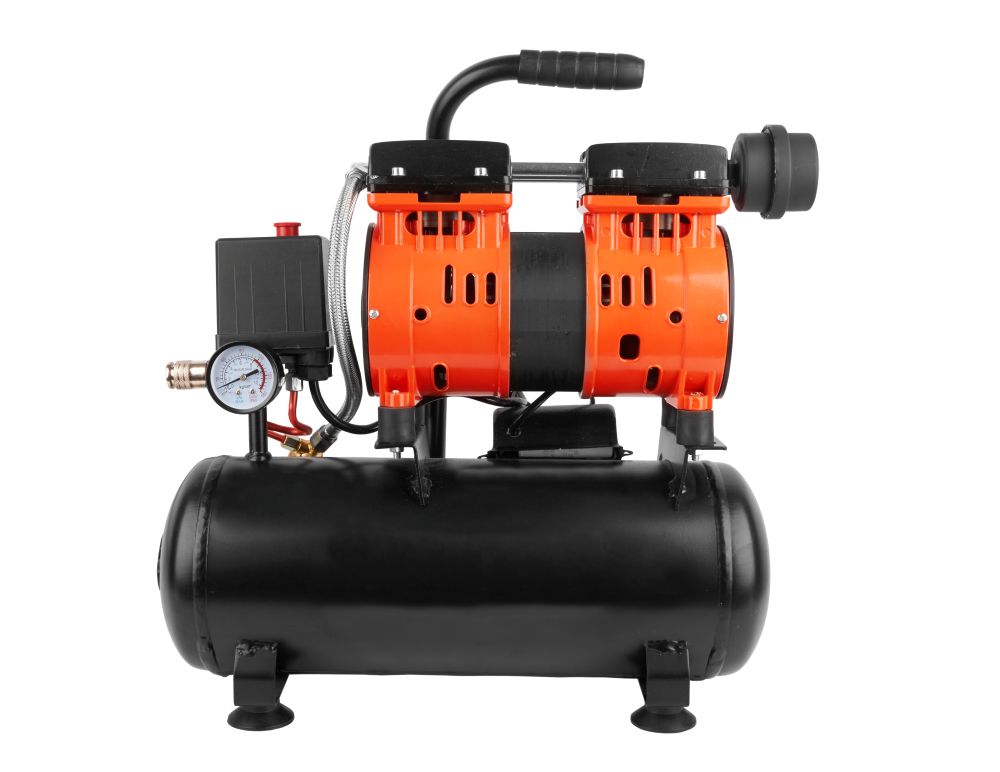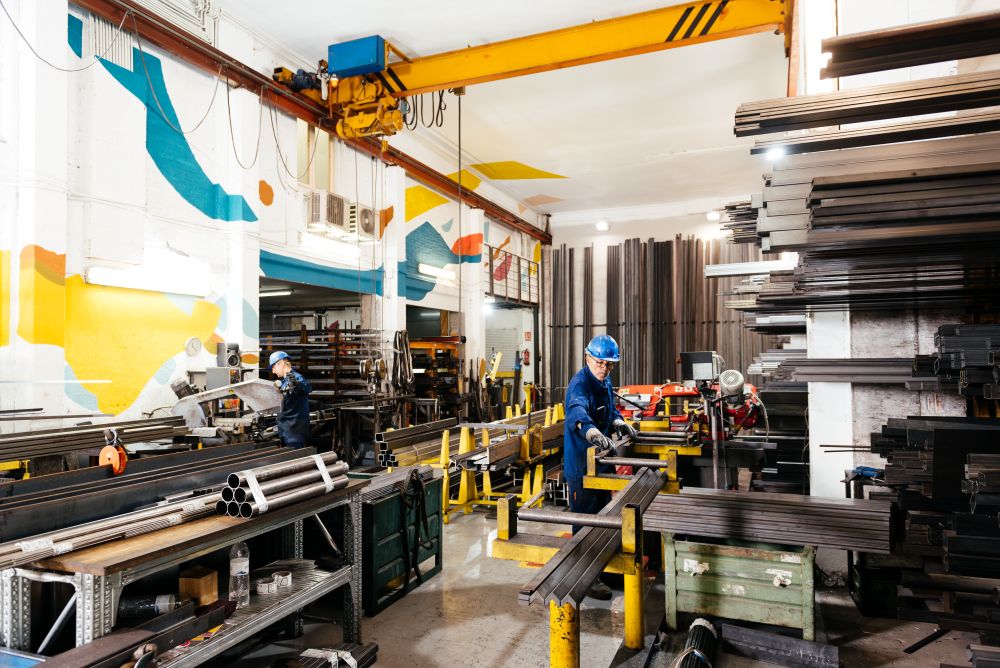Which is Better: Oil-Flooded or Oil Free Air Compressor?

Every production team relies on compressed air. It’s often called the “fourth utility” because it’s as vital as electricity, water, and gas in keeping operations running.
From food production to high-tech manufacturing, compressed air supports the work behind the scenes that makes everything else possible.
But the type of air compressor you choose carries real weight. It can shape your energy costs, determine how clean your air supply is, and even affect how long your equipment lasts.
That’s why so many facilities find themselves weighing two main options: oil-flooded or oil free air compressor.
Which one is the better fit for your operation?
What is an Oil Free Air Compressor?
Oil free air compressor models keep oil completely out of the compression chamber. Instead of relying on oil for lubrication where air is compressed, these machines use special coatings like Teflon on the screw elements, along with a two-stage compression system, to generate air without introducing any contaminants.
It’s important to note that “oil-free” doesn’t mean the entire machine is free of oil. The bearings and gearbox still depend on lubrication to operate reliably, but that oil is kept completely separate from the air stream since the gearbox sits outside the compression chamber.
With proper sealing in place, the oil remains contained, preventing any risk of it reaching the compressed air supply.
What are the key advantages of an oil free air compressor?
- Ultra-clean air quality, reduced contamination: With no oil in the compression chamber, an oil free air compressor eliminates the risk of oil carryover, making it ideal for sensitive industries such as pharmaceutical manufacturing, food and beverage, electronics, production, and medical and healthcare fields.
- Energy efficiency: An oil free air compressor is engineered with advanced designs that minimise power consumption, helping lower operating expenses. For facilities that run large-scale or continuous operations, these efficiency gains can add up to substantial cost savings over time.
- Simplified maintenance: With no oil changes or frequent oil filter replacements needed, oil-free compressors cut down on routine servicing and overall running costs.
Understanding Oil-Flooded (Lubricated) Compressors
Oil-flooded compressors, most commonly of the rotary screw type, operate by circulating oil directly into the compression chamber.
The oil serves multiple roles: it lubricates moving parts, helps seal the compression process, and removes heat from the system.
What are the key advantages of an oil-flooded air compressor?
- Durability under load: Oil lubrication allows the compressor to run efficiently and steadily during long, heavy-duty operation. The oil also helps cool the machine, helping to extend its service life. Additionally, an oil-flooded air compressor produces higher compressed air pressure, making it suitable for automotive, steel industry, etc.
- Quieter performance: The oil film reduces friction between moving parts, cutting down on mechanical noise.
- Lower upfront cost: Oil-flooded compressors are significantly cheaper to purchase than oil-free models, sometimes by as much as half.
Head-to-Head: Key Differences at a Glance
Oil-Flooded vs. Oil Free Air Compressor |
||
| Type of Compressor | Oil-Flooded Compressor | Oil Free Compressor |
| Initial Cost | Generally lower upfront cost. | Higher initial purchase price. |
| Operating Cost & Maintenance | Higher long-term costs due to regular oil changes, filter replacements | Lower long-term costs. No oil-related maintenance is needed, saving money on oil, filters, and labour. |
| Air Quality | Requires downstream filtration to remove oil mist and vapor. Unfiltered air is unsuitable for sensitive applications. | Delivers clean, oil-free air. |
| Noise & Vibration | Typically quieter due to the oil acting as a lubricant, resulting in less friction. | Generally louder because of the lack of oil to dampen the sound of moving parts. |
| Best Air Compressor Type for Different Industries | Oil and gas, general manufacturing, mining, construction, automotive repair | Food and beverage, pharmaceutical, electronics manufacturing, medical and healthcare |
The right compressor depends on the job. Oil-flooded models are often the practical choice for general industry, construction, and automotive work, where lower cost, durability, and tolerance for minimal oil carryover matter.
An oil-free air compressor, meanwhile, is preferred in food, pharma, medical, and electronics manufacturing, where clean air is critical and the higher price is offset by purity, reduced maintenance, and reduced contamination risk.
How Maintenance Impacts the Total Cost of Air Compressors in Singapore
In Singapore, the true cost of an air compressor goes well beyond the purchase price. Local electricity rates, high humidity, and the number of operating hours all influence long-term expenses, making energy use and maintenance key cost drivers.
On service intervals
Oil-flooded units require frequent oil and filter changes, but oil change frequency greatly depends on the type of air compressor and how often you use it. Meanwhile, an oil free air compressor has fewer service needs but may require more specialised parts.
On preventive maintenance
Regular servicing prevents costly downtime and extends equipment life, lowering total cost over time. For practical advice, check our guides on oil free compressor maintenance tips and how to extend the lifespan of industrial compressors.
How to Choose the Right Air Compressor for Your Facility

Selecting the right compressor comes down to matching equipment to your operational needs. A few points to consider:
- Required air purity: Do you need oil-free air quality, or is oil-flooded acceptable?
- Duty cycle and runtime: Will the machine run continuously, or only in short bursts?
- Noise limitations: Is the compressor located near workers or in a noise-sensitive environment?
- Budget vs. lifecycle cost: Weigh the lower upfront price of oil-flooded units against the long-term efficiency and maintenance savings of oil-free models.
- Space and installation: Ensure your facility can accommodate the footprint, ventilation, and service access needed for safe operation.
Not sure which type of air compressor fits your operation?
Every facility is different, and expert advice can make all the difference. Schedule a consultation with a reliable air compressor supplier in Singapore and get tailored recommendations for your setup.
